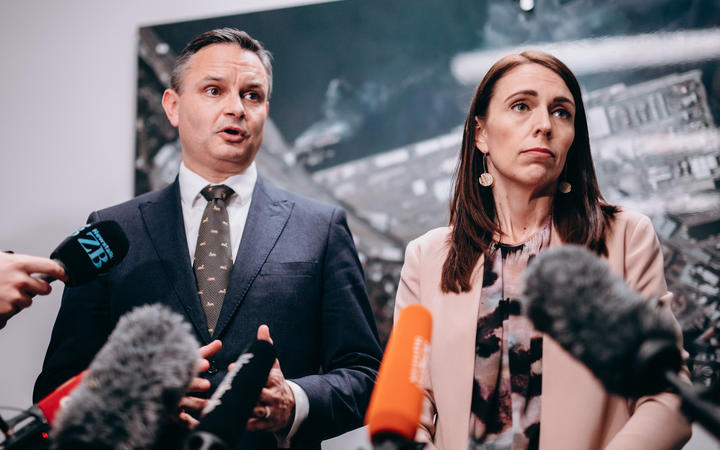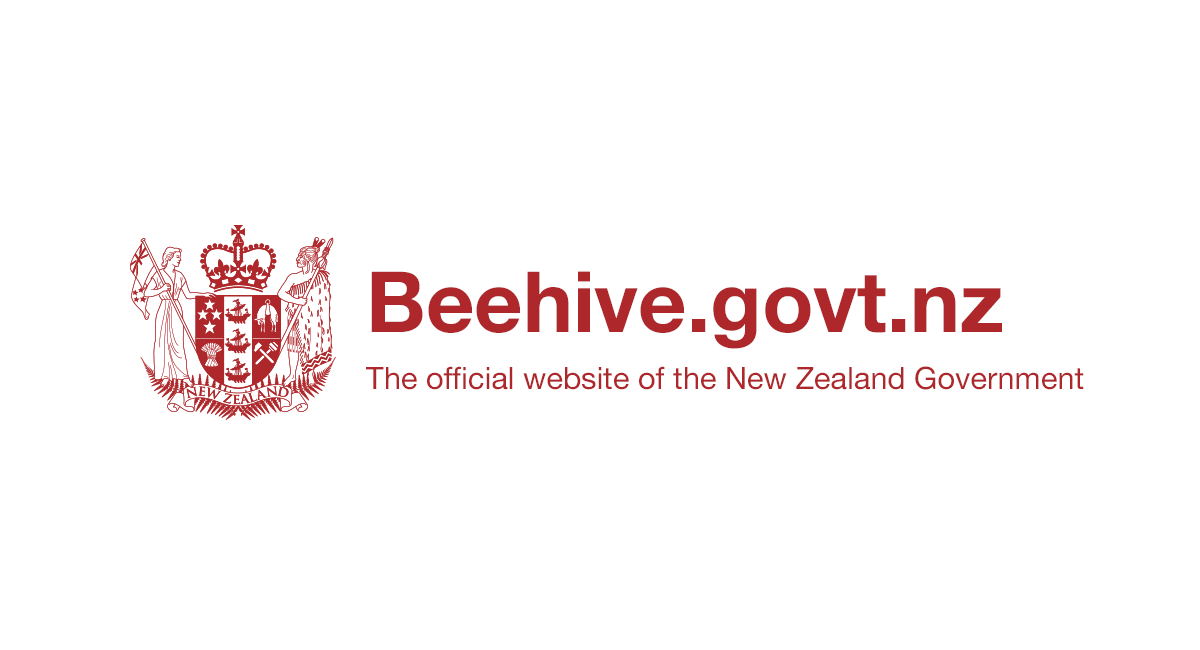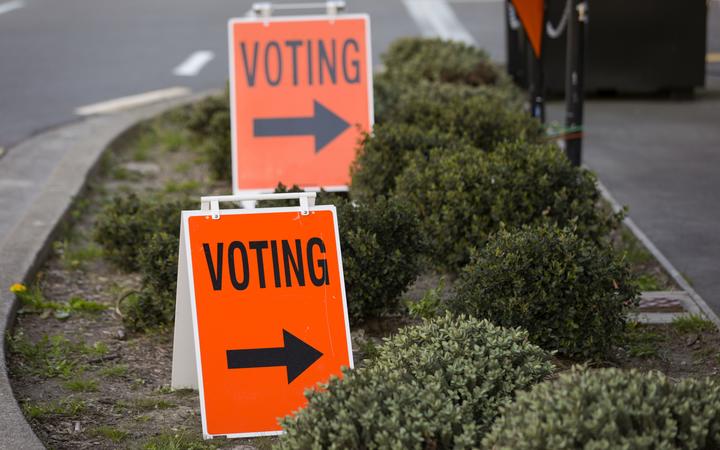With the New Zealand election due on October 17, the third of four debates between Labour Party Prime Minister Jacinda Ardern and National Party leader Judith Collins took place in Christchurch on Tuesday evening. The event, organized by the Stuff media organisation, followed two previous debates, broadcast on TVNZ and Newshub. The final debate will be aired on TVNZ on Thursday.
Despite media attempts to depict the third debate in particular as “energetic” and even “feisty,” all three were lacklustre affairs, with little substance. New Zealand Herald commentator Bryce Edwards had earlier bemoaned the fact that there was no “contest of ideas” anywhere in the campaign and the “policy void” was worse than usual.
This is not accidental. Claiming that the coronavirus crisis makes policymaking too difficult, Labour and National, the two main parties of big business, along with their allies, are deliberately hiding from the population the sweeping austerity agenda that will be imposed as soon as the election is out of the way.
The campaign began amid extraordinary instability in the political establishment. The election was postponed by a month, after a series of fresh COVID-19 cases surged in Auckland during September. In July, Labour’s Health Minister David Clark resigned over failures in his handling of the COVID-19 response. Collins was installed as third opposition leader in as many months in July following ongoing inner-party turmoil.
When Ardern launched Labour’s campaign in early August, she described it as a “COVID election,” with the pandemic response being the central issue. At the conclusion of Tuesday’s debate, Ardern again emphasised that the country’s “team of five million” voters should support Labour for its purported defeat of COVID-19.
There is an air of unreality about all of this. The election is being held amid an unprecedented breakdown of capitalism, accelerated by the pandemic, which has killed more than a million people worldwide. While New Zealand’s COVID-19 numbers are lower than those of most other countries, it remains a very real threat.
Every party is peddling the nationalist myth that New Zealand is somehow exempt from the intensifying global economic and social catastrophe, which promises to exceed even the devastation of the Great Depression. The US, the so-called pillar of western democracy, is in the grip of a profound crisis that will impact on every country around the world.
A brief exchange during the second debate underscored the right-wing, pro-imperialist character of both parties. Asked by moderator Patrick Gower if they thought Trump was a “dangerous influence on the world,” Ardern replied: “I will work in New Zealand’s interest and if a democracy delivers Donald Trump that’s who we work with.”
That means, among other things, deepening collaboration with Washington’s build-up to war against China, which is backed by the Republicans and Democrats alike.
Collins was even more fulsome, dishonestly declaring: “He [Trump] has actually done some quite recent stuff with Israel and UAE and so actually that's better than war, don’t you think? He hasn’t been ready to rush into war.”
Neither leader mentioned, let alone opposed, Trump’s extraordinary threats to disregard the outcome of the US election and mobilise fascist thugs to carry out a coup if he does not win.
Their comments amounted to a pledge of fealty to Washington by both leaders. Ardern’s government is itself a product of a US intervention. During protracted coalition talks after the 2017 election, US ambassador Scott Brown publicly criticised the incumbent National Party for failing to fully support Trump’s threats to “destroy” North Korea. Following this, the nationalist, anti-immigrant NZ First Party announced it was forming a coalition with Labour, instead of National, despite the latter receiving more votes.
Discussion of last year’s mass shooting in Christchurch, in which 51 people died, has also been suppressed throughout the election campaign, including in the Christchurch debate. The shooter Brenton Tarrant’s fascist ideology had been encouraged by decades of war in Iraq and Afghanistan and the demonisation of Muslims and immigrants, in which every party is complicit. Attacks on democratic rights, including increased police powers and internet censorship, are now under way as the ruling class prepares to suppress working class opposition to social inequality and war.
Like other governments around the world, the ruling Labour Party has responded to the pandemic by presenting businesses and the banks with tens of billions of dollars, while forcing people to return to work sooner than health experts recommend. Each of the three debates has begun with the leaders declaring their principal aim was to “build our economy,” i.e., do whatever is required to boost profits.
The country’s biggest retailer, The Warehouse Group, this week posted an after-tax profit of $44.5 million for the year to August. The company would have made a $4.3 million loss without the $67.7 million “wage subsidy” from the government, which it took before axing 1,080 jobs.
According to Bloomberg, global business leaders are lauding the Labour government as having the world’s “best” coronavirus response—ranked above Japan and Taiwan—but working class living standards are collapsing. Median incomes plummeted 7.6 percent in the June quarter compared with last year, while nearly 80,000 people have lost jobs since March. One in four children lives in poverty and demand for food banks has soared.
The campaign underscores the vast gulf between the ruling elite and the increasingly impoverished working class. In a question submitted to the first debate by Auckland student Aigagalefili Fepulea’i-Tapua’i, the two leaders were asked how they would stop young people dropping out of school in order to work to support their families.
Both leaders responded with empty platitudes. Ardern pointed to Labour’s promise to lift the minimum wage from $18.90 to a paltry $20 an hour. She declared there was still “much to do” about child poverty and “we won’t do it overnight.” Collins rejected any increase in the minimum wage, saying small business owners “can’t afford constant rises.”
Both parties’ tax policies will further entrench social inequality. National has promised to temporarily slash income tax, favouring the rich. A person on the minimum wage would only receive an extra $8 a week, while those earning over $90,000 a year will get an extra $58 a week. Asked about Labour’s promise to raise income tax slightly for the top 2 percent of earners, Ardern declared, “This time now is not the time to have huge uncertainty around tax policy.” Labour has ruled out any taxes on wealth.
Neither party will do anything to address the housing crisis, driven by rampant speculation and profiteering. House prices and rents in New Zealand are among the highest in the world, relative to wages, and have risen by more than a quarter in just three years. A promise by Labour in 2017 to build tens of thousands of new affordable houses has come to naught.
Labour is now pledging to fund an extra 8,000 more social and transitional housing places. Even if implemented, this would do nothing to address demand: the public housing wait list has more than tripled under the Ardern government to reach nearly 20,000 households. National is simply promising to liberalize planning laws and hasten the issuing of building consents.
The working class is being disenfranchised in this election. The next government, whatever its make-up, will pave the way for a resurgence of class struggles, as workers are driven to the left of all the parties by the worsening social crisis. Workers and young people must prepare, by building their own party, on the basis of a socialist and internationalist program.
Written by John Braddock, Socialist Equality Group. Originally published on WSWS.












 India
India United States of America
United States of America New Zealand
New Zealand